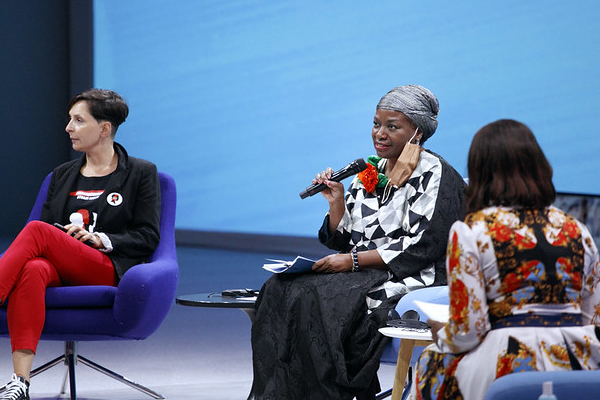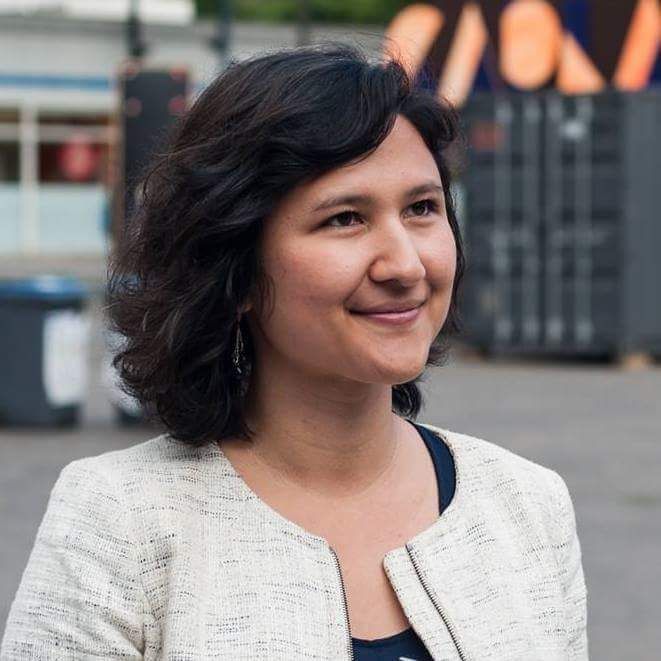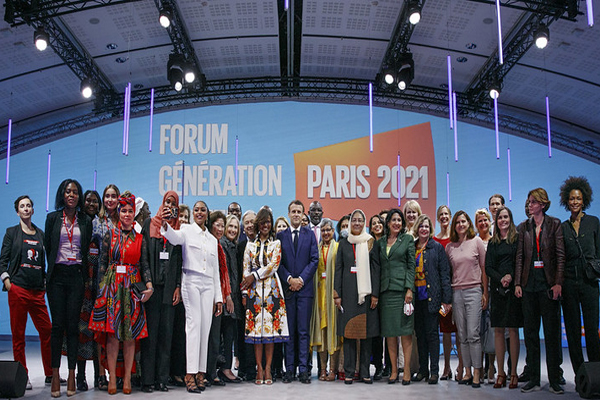The Generation Equality Forum (GEF) – hosted in Paris – concluded this week with the announcement of bold gender equality commitments; along with the launch of a global five-year action journey to accelerate gender equality by 2026.
The Forum’s bold, action-oriented agenda will be under-written by nearly $40 billion of confirmed investments; as well as ambitious policy and programme commitments from governments, philanthropy, civil society, youth organisations and the private sector. The monumental conclusion comes at a critical moment as the world assesses the disproportionate and negative impact Covid-19 has had on women and girls. Gender equality advocates have pressed for gender-responsive stimulus and recovery plans; to ensure that women and girls are not left behind as the world re-builds.
“The Generation Equality Forum marks a positive, historic shift in power and perspective. Together we have mobilised across different sectors of society, from south to north, to become a formidable force, ready to open a new chapter in gender equality,” stated Phumzile Mlambo-Ngcuka, Executive Director of UN Women. “The Forum’s ecosystem of partners – and the investments, commitments and energy they are bringing to confront the greatest barriers to gender equality – will ensure faster progress for the world’s women and girls than we have seen before.”

5-YEAR PLAN TO ACCELERATE GENDER EQUALITY
UN Women will maintain a critical role driving the Forum’s 5-year action journey, overseeing the implementation of commitments to ensure accountability and progress over the next five years. To mark the close of the Forum for the Government of France, the host of the Paris Forum, Ambassador and Secretary General of the Generation Equality Forum Delphine O commented: “After two years of collective work with Member States, civil society and philanthropic and private organisations, we succeeded in raising the largest amount of investment to advance gender equality and women’s rights ever. By implementing a new way of tackling global issues through efficient multilateralism, the Generation Equality Forum reversed the priorities on the international agenda and made gender equality, for too long underestimated, a long-term issue for the international community, along with climate, education and health. France will continue to be at the forefront to accelerate gender equality progress.”

BILLIONS TO ADVANCE GENDER EQUALITY
The $40 billion of investments confirmed at the Forum’s close represent a major step-change in resourcing for women’s and girls’ rights. Lack of financing is widely understood to be a major reason for slow progress in advancing gender equality; and in enacting the women’s rights agenda of the milestone 1995 Beijing Conference. By the close of the Forum, governments and public sector institutions had committed to $21 billion in gender equality investments; along with $13 billion from the private sector, and philanthropy accounting for $4.5 billion. Addiionally, UN entities and international/regional organisations committed around $1.3 billion.
In addition to these bold investments, many organisations made strong policy and programme commitments; including 440 civil society organisations and 94 youth-led organizations. Forum organisers expect that the approximately 1,000 commitment-makers confirmed to date will be joined by many others over the next five years.
The Forum in Paris, held earlier this week (30 June-2 July), engaged nearly 50,000 people in a mainly virtual format; to generate action for the rapid advancement of gender justice. The convening launched a Global Acceleration Plan for Gender Equality designed by six Action Coalitions – multi-stakeholder partnerships that have identified the most critical actions required to achieve gender equality in areas from gender based violence and technology to economic and climate justice. The Forum also launched a Compact on Women, Peace and Security and Humanitarian Action; and announced new gender equality initiatives focused on health, sports, culture and education.
WIDE-RANGING COMMITMENTS
In addition to the commitments unveiled at the opening ceremony, the final two days of the Forum revealed a wide range of commitments from every sector. They include the following:
- The Government of Burkina Faso’s work with Benin, Guinea, Mali, Niger and Togo to develop shared commitments related to family life education; free care for pregnant women and children under five years; and pursuing legal and social change to end gender-based violence including FGM and child marriage.
- The US Government’s commitment to a range of significant policies and investment requests. They include an investment of $1 billion to support programmes to end violence against women; and $175 million to prevent and respond to gender-based violence globally.
- The expansion of the Global Alliance for Care, initiated by the Government of Mexico and UN Women. This now includes over 39 countries. For example, a commitment of $100 million from Canada’s government to address inequalities in the care economy globally; parallel to significant investment in its own care system.
- The Malala Fund’s commitment to provide at least $20 million in feminist funding to girl’s education activists.
- P&G’s commitment to advance women’s economic justice and rights through its global value chain; by spending $10 billion with women-owned and women-led businesses through 2025.
- The Government of Bangladesh’s pledge to increase women’s participation in the ICT sector. This includes the tech start-up and e-commerce sector, to 25% by 2026 and 50% by 2041.
- PayPal’s commitment of $100 million to advance women’s economic empowerment.
- Raise Your Voice Saint Lucia’s commitment to collaborate with Caribbean NGOs to advocate for the recognition of the LGBTQI community; and to undertake region-wide legislative reform to minimise discrimination and victimisation.
- Open Society Foundation’s commitment of at least $100 million over five years; to fund feminist political mobilisation and leadership.
INSPIRATION FOR INCLUSION
Reflecting on the Forum, African Union Goodwill Ambassador on Ending Child Marriage Nyaradzayi Gumbonzvanda, stated: “This week, I relived the experience of 1995; when I was a young women’s rights activist at the Beijing Conference. The Covid-19 context and other barriers are now an even greater inspiration for innovation, solidarity and inclusion. I am grateful for the commitments made this week. Now it’s time to invest in girls and young women even more; for resources to reach rural and marginalised communities, for technology for public good and available to all. And for member states greater accountability to human rights of women and girls.”
Years of progress towards gender equality have been out women globally as many women left the workforce or downshifting their careers due to Covid-19, according to findings. Additionally, more women continued to exit, rather than enter, the workforce, in countries like the US, as reported.





































